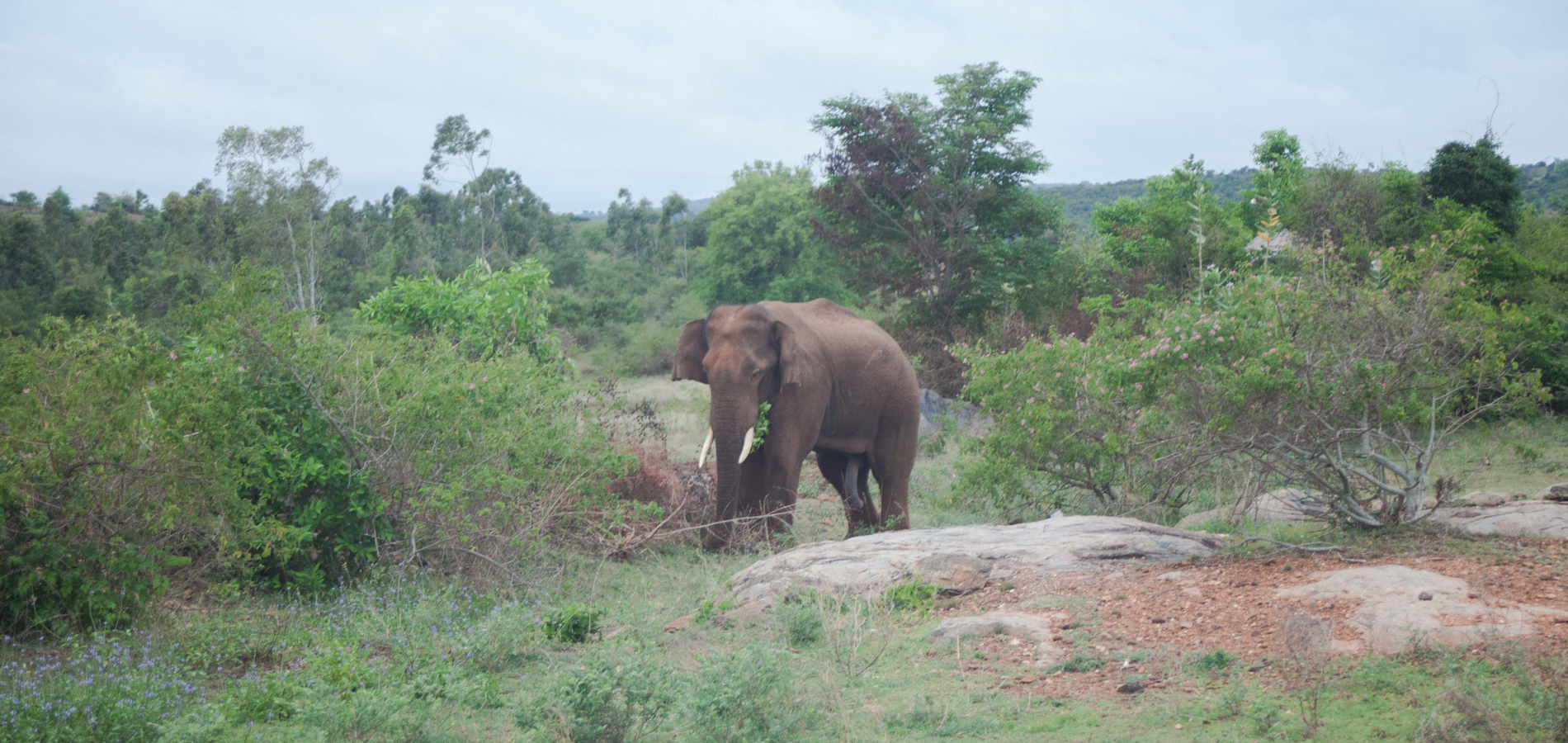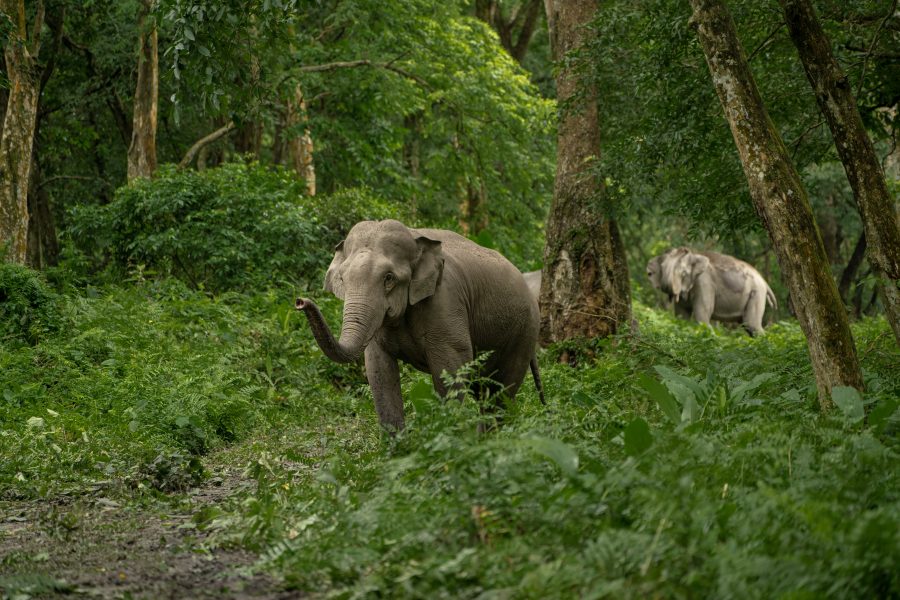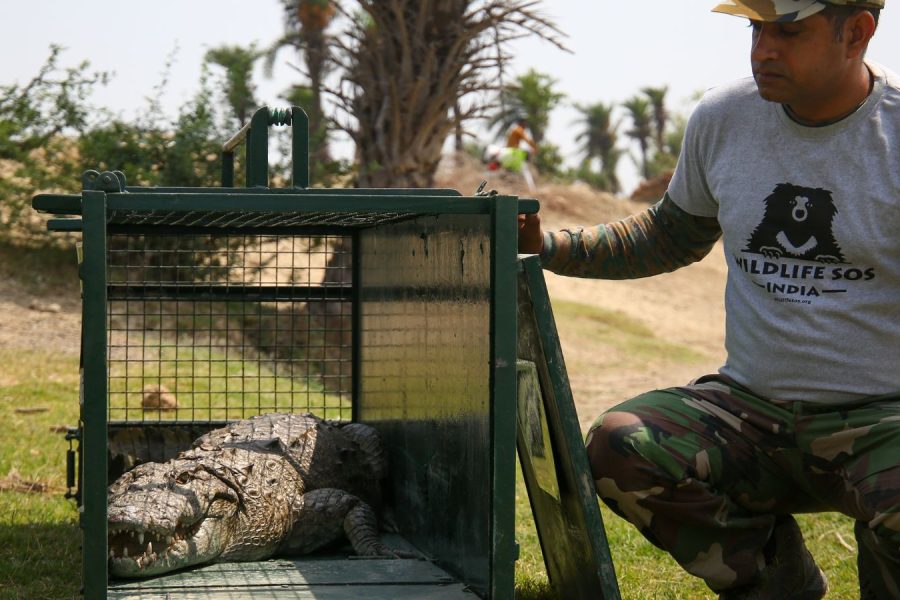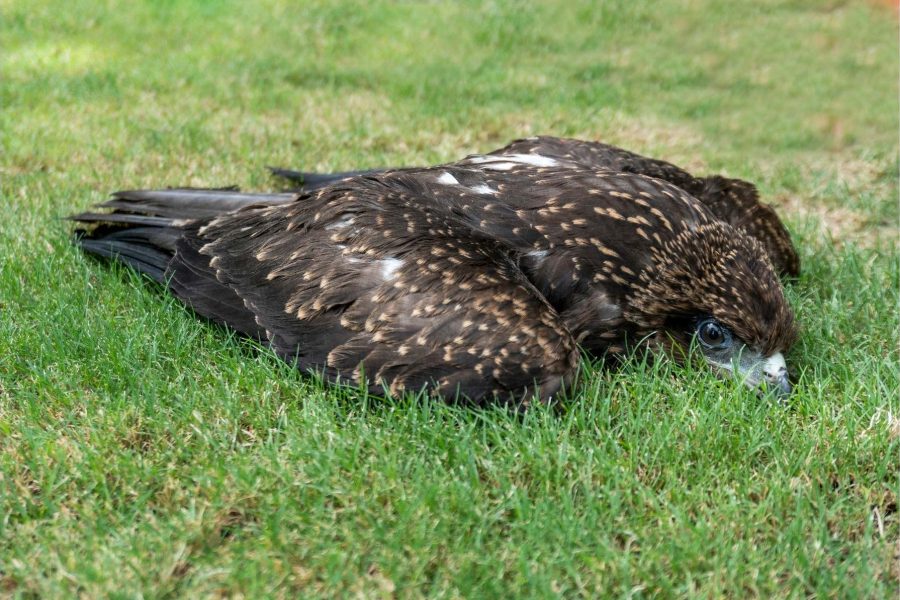The incidents in the recent past have surely questioned our basic sense of humanity and the concept of co-existence to our core, especially with people conspiring to put wild elephants in harm’s way by poisoning them or keeping explosives in their way.
What restores faith in humanity, in these troubled times, is news from Tamil Nadu where the Forest Department, along with a team of Wildlife SOS led by our senior veterinarian, Dr. Arun A Sha, successfully tranquilised and translocated a wild elephant that had been the cause of serious conflict in the area. The tusker had been making frequent visits to the nearby agricultural fields to feed on the crops, which was the cause of panic amongst villagers but instead of finding untoward ways to deal with this situation of conflict, they reached out to the Forest Department for help and support.
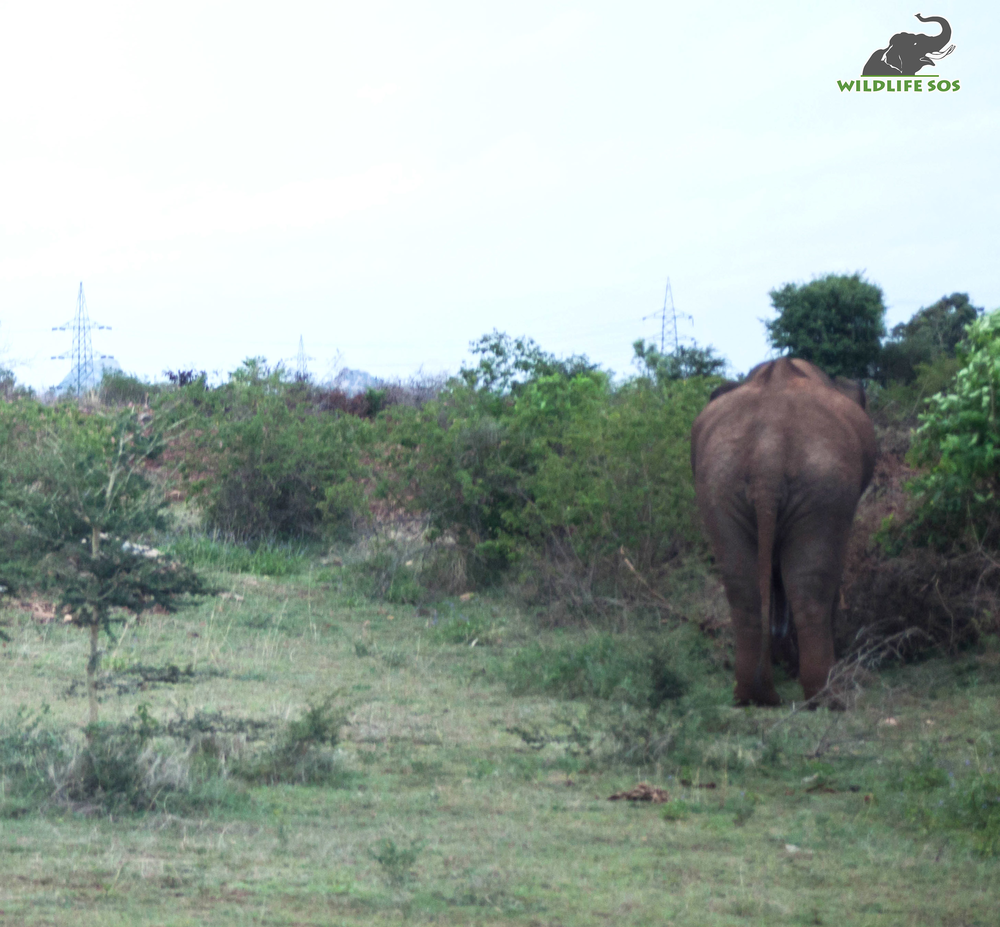
The tusker, approximately 25-30 years of age, was spotted dangerously close to human habitat, being in the habit of regular crop-raiding from the past 15 days. Before the conflict would take an awry turn, the villagers reached out to the Tamil Nadu Forest Department to inform them of the dire situation at hand. In the early hours of Thursday, the team from Wildlife SOS Bannerghatta Bear Rescue Centre left for the location where the tusker was, in order to assist the Tamil Nadu Forest Department officials, with the tranquilising and translocation of the elephant for them to further radio-collar the elephant.
Once the tusker was spotted, the sedative was prepared and Dr. A Prakash, a senior veterinarian from the Tamil Nadu Forest Department, shot the first dart aiming for the rump of the elephant in order to avoid startling him. A follow-up shot was administered within 15 minutes by Dr Arun to ensure complete sedation of the elephant for further translocation before the radio-collaring operation could begin.
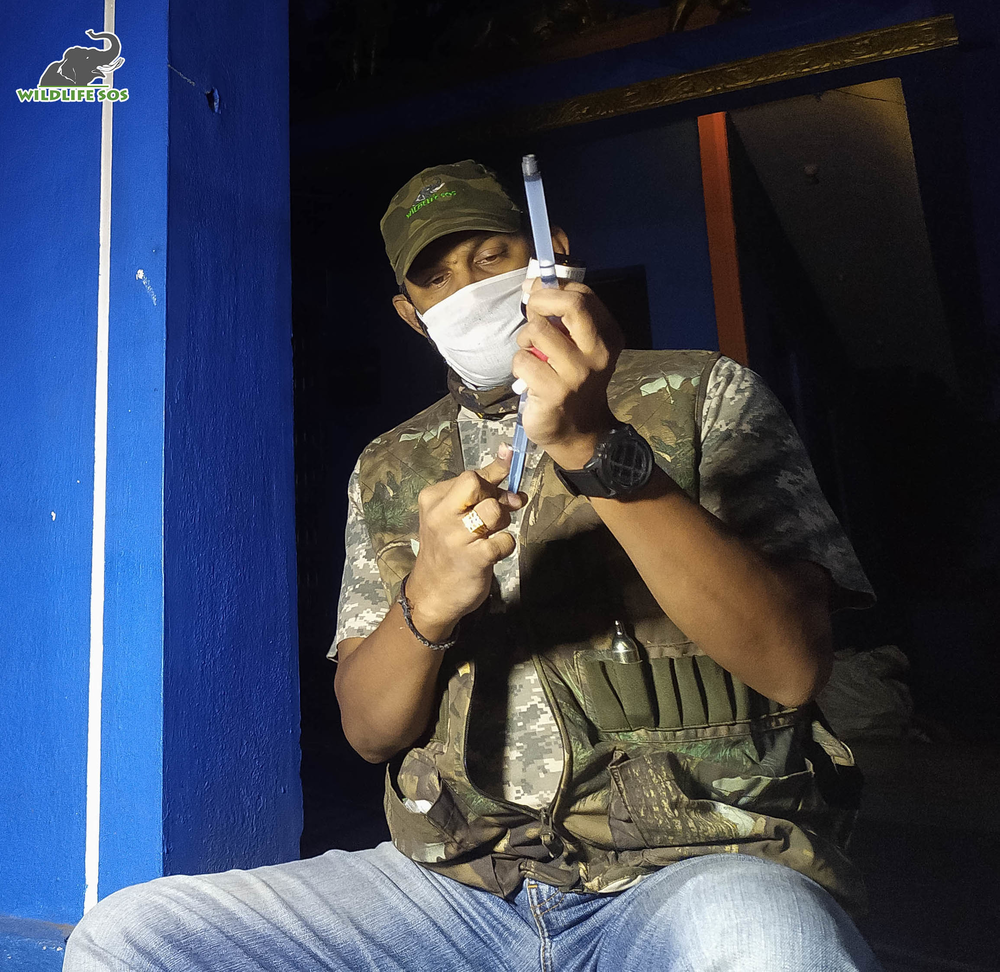
Once the elephant was tracked and sedated using tranquilizers, it was gently moved in a large vehicle and safely relocated to a reserve forest a safe distance away to help ensure that human-elephant conflict is mitigated. Prior to setting the animal free, the elephant was also radio-collared by Forest Officers to ensure that they can track movement patterns of the bull elephant while monitoring his behaviour, crop-raiding patterns.
The tranquilised tusker was lifted with the help of a crane and loaded onto the Animal Ambulance in order to be translocated to an area away from human habitation, in order to decrease an untoward incident of interaction, and further conflict. It was in this forest division that the Tamil Nadu Forest Department would radio-collar the elephant, which would allow them to track the exact location of the elephant so as to understand movement patterns as well as mitigate conflict situations. Radio-collaring has proven to be an effective way of mitigating incidents of human-elephant conflict, especially in Central India, wherein Wildlife SOS and the Chhattisgarh Forest Department have managed to successfully radio-collar the matriarch of a conflict herd in the Mahasamund area of Chhattisgarh.
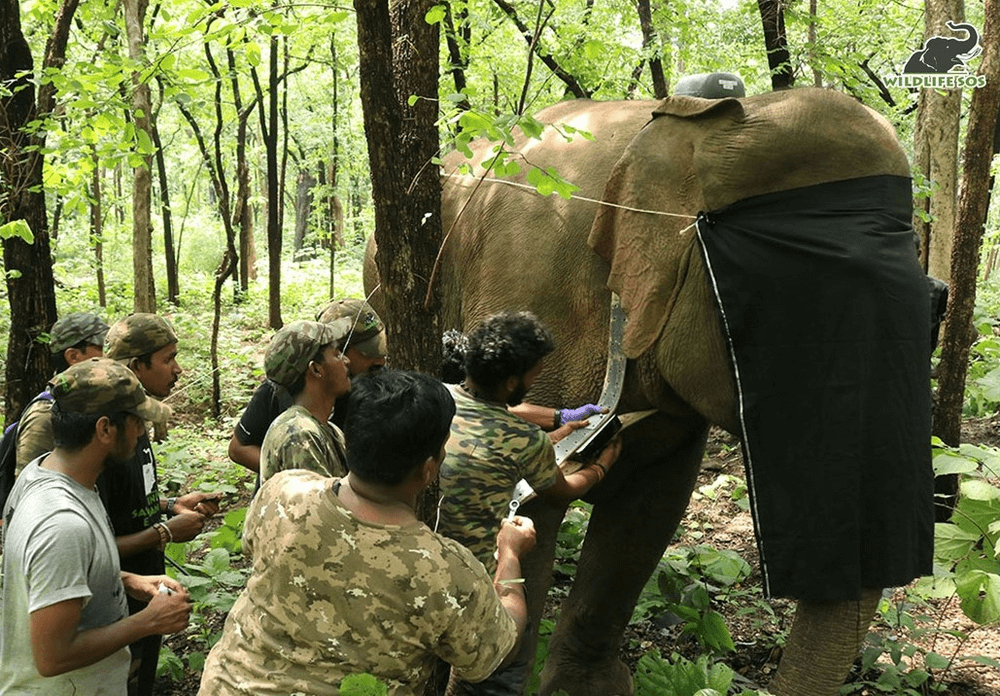
This particular herd has been in the regular habit of crop-raiding and damaging property, which is why, with the help of radio-collaring, the Wildlife SOS team and the Forest Department are regularly able to track the exact location and movement of the herd. An alert is raised every four hours with the exact updated location of the herd’s movement on the map, which allows an early warning system to be established wherein the forest officials issue a warning beforehand to inform the village that the herd will be crossing.
By radio-collaring this conflict tusker, the Tamil Nadu Forest Department has been a force to reckon with, in light of the recent events where wild elephants have been killed to avert conflict. Wildlife SOS would like to extend our heartfelt gratitude to Tamil Nadu Forest Department for setting an example in conflict mitigation and safeguarding the future of the wild in the country!

